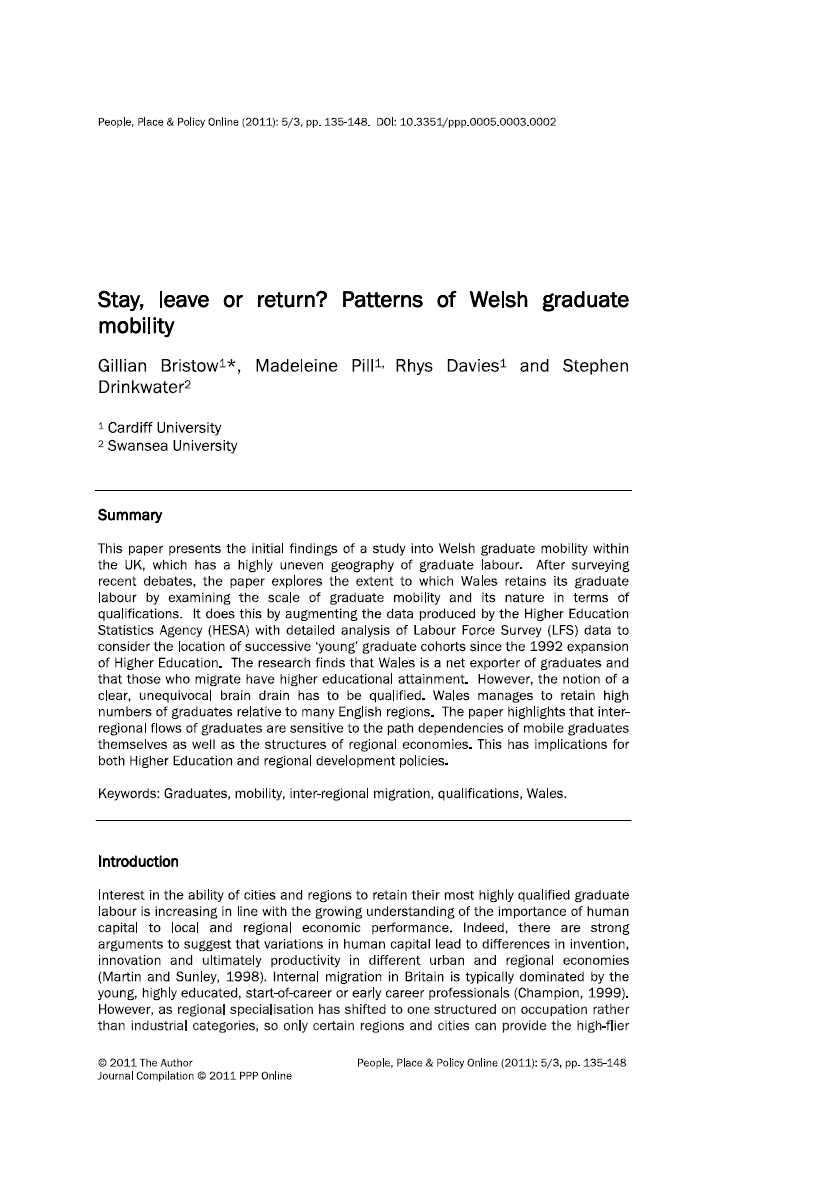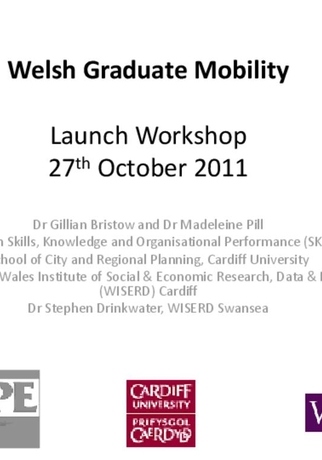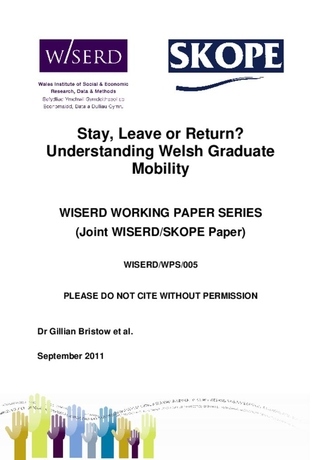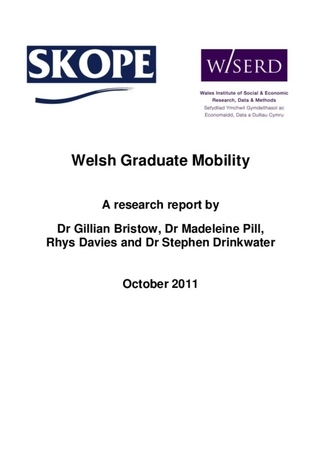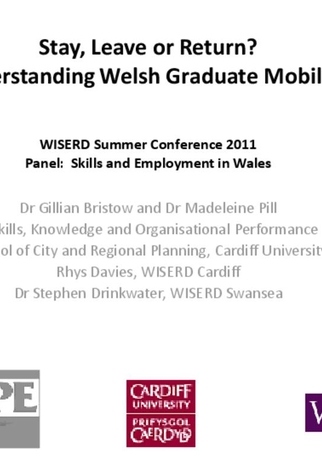Overview
The existence of a ‘brain drain’ of graduate labour from Wales has long been a focus of debate (for example, Drinkwater and Blackaby, 2004, c.f. Fevre, 2004). Welsh and English higher education and labour markets are interconnected (for example, Rees and Taylor, 2006) and Wales is a ‘loser’ region generating more undergraduates than it recruits recent graduates into employment (Hoare and Corver, 2009). This research sought to deepen understanding by investigating the nature and scale of graduate flows to and from Wales.
The project achieved this by exploring key questions such as to what extent does Wales retain its human capital in higher education and subsequent employment? Does Wales retain those who come to study from elsewhere in the UK? And do Welsh graduates who have studied or worked elsewhere return to Wales at a later stage? The research investigated the location and employment outcomes of successive ‘graduate cohorts’ since the 1992 expansion of Higher Education. It did this by augmenting the widely-used graduate first destinations data produced by the Higher Education Statistics Agency with detailed analysis of the Labour Force Survey and Annual Population Survey data. In so doing it sought to contribute to the existing literature on the relationships between human capital acquisition from higher education and migration (Faggian et al, 2007).
The analysis also aimed to provide new insights into the returns to human capital acquisition and to our understanding of the different stages of graduate mobility. This in turn has implications for higher education and skills policy in the region and highlights important inter-relationships between the mobility of students and graduates.
The project was undertaken jointly between colleagues in WISERD and the ESRC Centre on Skills, Knowledge and Organisational Performance (SKOPE) based at Cardiff and Oxford Universities. For further information on this project and other activities of SKOPE, please visit their website by clicking here.
Outputs
Some key findings from the report are as follows.
- Wales is a net loser of graduates each year
- Wales has lower retention rates than the other devolved nations in terms of both the proportion of students who remain to study, and the proportion of graduates from Welsh HE institutions who subsequently gain employment within Wales.
- There is not an unequivocal ‘brain drain’ – Wales is a net importer of students, so is bound to export graduates. The post-1992 expansion of HE has raised the proportion of students studying locally. There is also some evidence of returners in the short-term (students returning home) and later in the graduate life cycle.
- Certain graduates are more likely than others to migrate – graduates who migrate from their home nation generally possess higher levels of educational attainment (such as postgraduate qualifications) and (particularly the case for Wales) degrees in STEM (Science, Technology, Engineering and Maths) subject areas.
- Migration has clear consequences – migration from Wales is associated with better jobs, higher earnings and higher rates of self-employment.
- Graduates from STEM subject areas generally exhibit better labour market outcomes and these outcomes are further improved among those who migrate.
- Within Wales, the main source of quality employment for non-migrant graduates is the public sector, which employs approximately half of post-1992 young graduates who were born and live in Wales.
- The most important pathways into the Welsh graduate labour force are the ‘locals’ (those who were born and studied in Wales) and the ‘returners’ (those born in Wales who studied elsewhere).
In considering how graduate mobility evolves over time, qualitative analysis illuminates the complex interplay of push and pull factors on graduate mobility and how they change with graduate life cycles. It shows that in Wales, as elsewhere, notions of a clear and unequivocal ‘brain drain’ are too simplistic and points to factors which enhance the pull of home for Welsh-born graduates who have commenced their careers elsewhere. As such, ‘brain circulation’ may be a more pertinent concept when considering the flows of graduate labour shaping regional economic development.
Overall, the research has highlighted the economic returns to graduate migration and how these are sensitive to the path dependencies and structures of regional economies, as well as to the path dependencies of mobile graduates themselves. Its findings have a number of implications for economic development and HE policy. A key issue is that encouraging the Welsh-born to study and stay in Wales is more likely to have an impact on graduate retention rates than seeking to keep students who come to Wales to study, or to attract graduates who have no prior Welsh links. The complex and rapidly changing nature of graduate mobility merits concerted ongoing research.
Report Data
Due to the volume of data included in the analytical report, it was not feasible to publish the data used to create the charts within the report. The excel file available below holds the data and versions of the charts from the main analytical chapters. In each file, labelled to indicate to which part of the main report it refers, there are both charts and the data used to create them. There is a list of contents in the first worksheet and links that take users to the selected chart or table. Please refer to the main report for further explanation.
The excel workbook can be downloaded by clicking here.
Launch Event
A launch event for report took place at Cardiff Universty on the 27th October 2011. Invited guests included university academics and administrators, as well as business representatives, Welsh Government, ONS and HEFCW officials.




